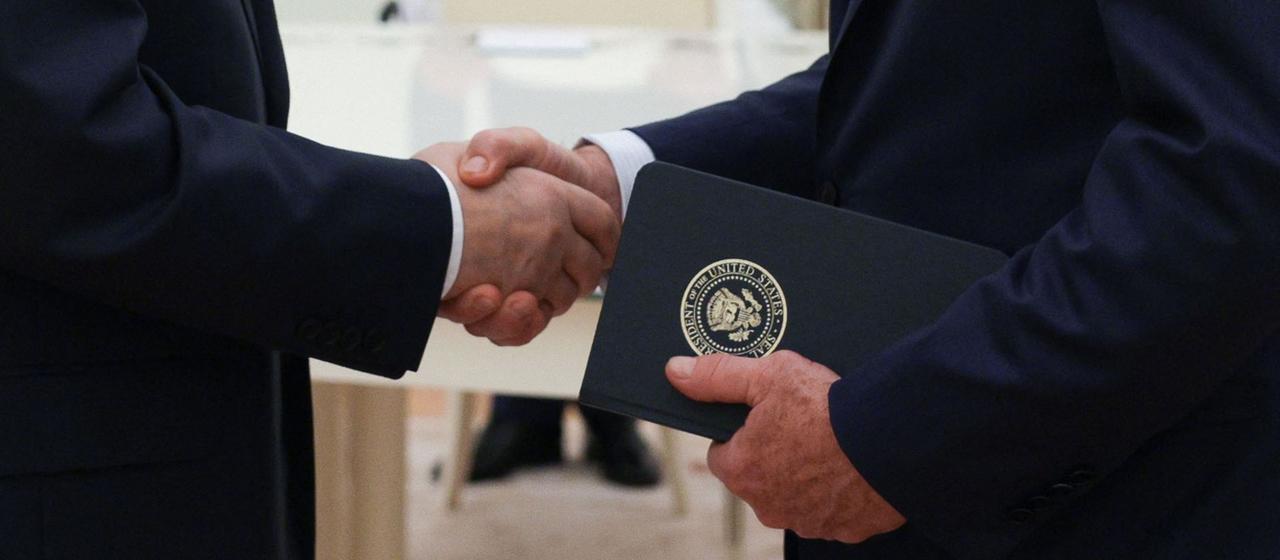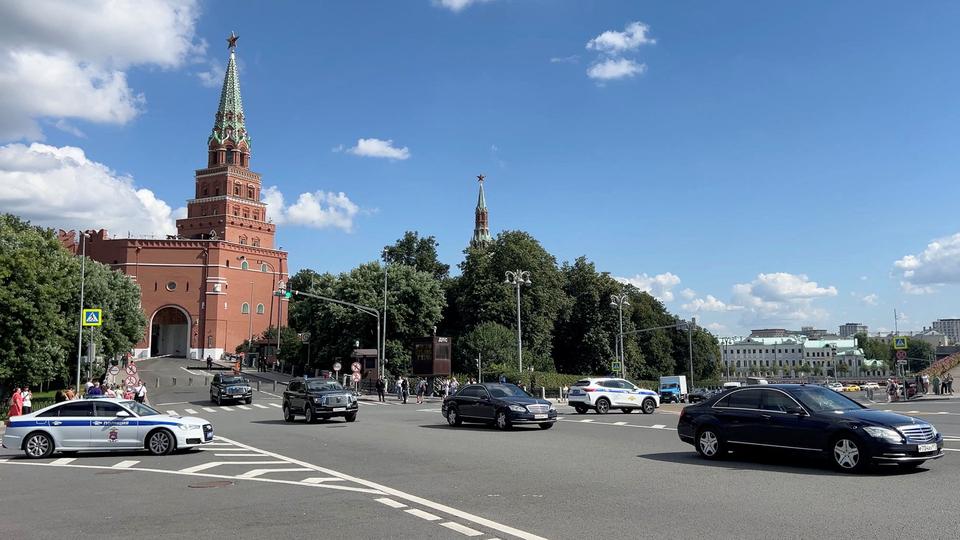
On the anniversary of the Ukrainian offensive in Kursk, Russia commemorates the victims – and the Kremlin maintains its position. A meeting between President Putin and US envoy Vitkoff ended without results.
On this August 6th, Russia commemorates the victims of the initially successful Ukrainian lightning offensive, which began exactly one year ago. At the time, it was a disgrace that regular Ukrainian troops had succeeded for the first time in bringing the war to the aggressor's territory. Since then, the approximately 60 villages have been recaptured, and a memorial stone was unveiled in Kursk.
Demonstrate strength in Moscow
On a day like this, you don't show any weakness. Especially not in the Kremlin, when US Special Envoy Steve Witkoff arrives. Russian President Vladimir Putin's press service announced in the early afternoon that both sides had taken about three hours to discuss the matter.
The special envoy then drove to the US Embassy in a convoy of five black limousines with flashing blue lights, a fairly straight route from the Kremlin along New Arbat Street, near which the large complex towers over the Moskva River.

A short time later, Witkoff's plane took off again. A quick transfer of information to Washington was necessary, as US President Donald Trump was planning to make important announcements from the Oval Office in a few hours.
Few concrete results
Putin's foreign policy adviser, Yuri Ushakov, described the talks as very useful and constructive, but they remained largely uninformative."The discussion focused on the Ukraine crisis, and secondly, on a perspective for possible strategic cooperation between the US and Russia." Some signals were conveyed from the Russian side on the Ukraine issue."And corresponding signals came from President Trump."
At that point, Trump hadn't yet been informed, and he could say more about the content of the signals afterward, Ushakov said. It's clear that Putin will only move from the most advantageous position on the front lines. At the same time, there was speculation about a de-escalation gesture, such as refraining from air strikes.
Russia continues to call for diplomacy
In Russia, however, they feel less pressured by Trump's ultimatum, which expires on Friday, than the US president himself. He wants a ceasefire for Ukraine, otherwise Russia's trading partners, such as India, would also be punished. He just signed a 25 percent punitive tariff on the subcontinent.
At least the bridges between Moscow and Washington weren't burned during those three hours. Shortly afterward, Putin advisor Kirill Dmitriev, who had picked up the guest from the US, posted on X:"Dialogue will triumph!" He thanked Vitkoff for his visit.
Little hope for agreement
Some Russian commentators had already expressed skepticism ahead of this fifth visit. For example, the director of the renowned Moscow Institute of World Economy and International Relations, Fyodor Voitolovsky, stated on the state news channel Russia 24:"The expectation that we will suddenly reach an agreement on all points with the Americans and that the conflict in Ukraine will be resolved is unfounded and premature."
Putin's strategy is to waste time and delay the ceasefire, according to Voitolowski. And Kyiv will only get peace if it de facto capitulates.
Mourning in Kursk, agenda in the Kremlin
In Kursk, meanwhile, Russia was cooling its wounds. A high-ranking cleric said at a memorial mass:"On this memorable day, I once again express my deepest condolences to all those affected. The truth stands behind us. God stands behind us. With our prayers, we help our fighters—as best we can."
After the meeting with Witkoff, Putin himself moved on to business as usual, as he still had an appointment with the King of Malaysia waiting for him.

